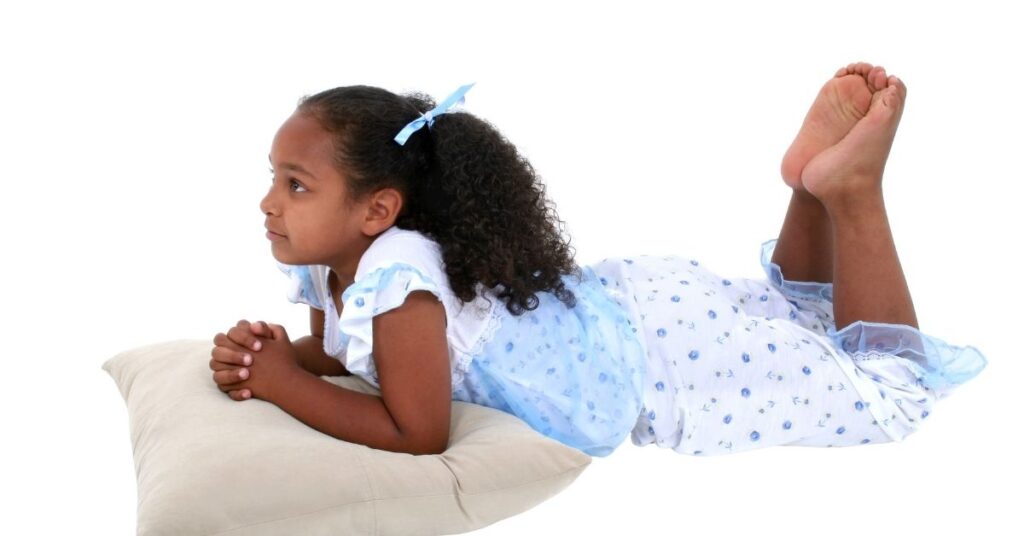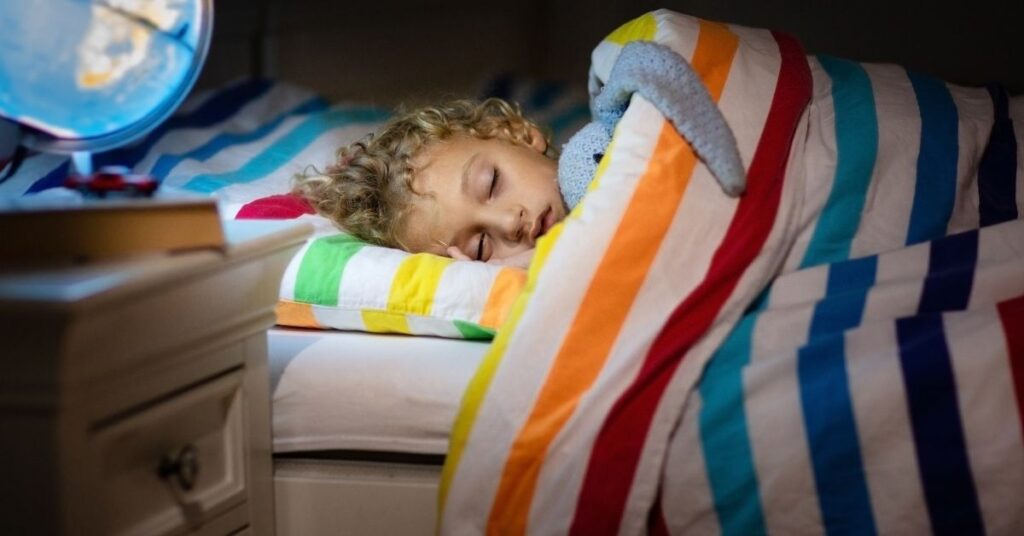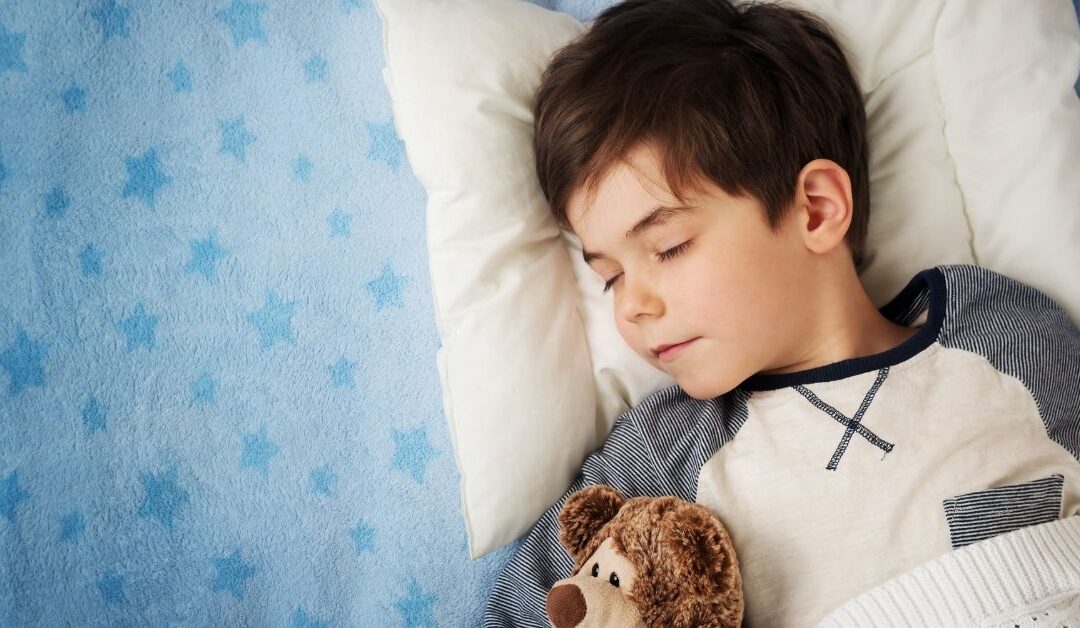We all look forward to the time when our children are completely out of diapers. Yet, children with autism and ADHD tend to struggle with bedwetting for longer periods of time than their neurotypical peers. This can cause frustration, angst and embarrassment for our children. Why does this occur and why should you do your best to help your child with autism and ADHD stop bedwetting?
What causes bedwetting?
The Mayo Clinic defines bedwetting as “involuntary urination while asleep after the age at which staying dry at night can be reasonably expected.” It is also referred to as nighttime incontinence and nocturnal enuresis.
Bedwetting in children ages 5 and under is considered normal. Many children are still developing control of their bladder during this time. Bedwetting also is more than twice as common in boys than girls.
Causes of bedwetting can include:
- Chronic constipation
- A small bladder
- Inability to recognize when their bladder is full
- Hormone imbalance
- Urinary tract infection
- Sleep apnea
- Diabetes
- Genetics
- Stress
- Development delay of the bladder or kidneys
- Structural issue with the urinary tract or nervous system
Why is bedwetting common among children with autism and ADHD?

For children and even teenagers with autism and ADHD, bedwetting is more common and tends to last longer. In fact, a study published in the Southern Medical Journal in 1997 found that six-year-olds with ADHD were three times more likely to wet their beds than their peers who did not have ADHD. Another study showed that about 15 percent of children with Asperger’s Syndrome (high-functioning autism) continue to wet the bed after age 5.
Why is that? There are several considerations that experts note could be reasons for this delay (in addition to the potential causes noted above):
- Children and teens with autism and ADHD tend to have more sleep problems, both falling asleep and staying asleep at night. This causes more irregular sleep patterns and an overall decrease in the amount of sleep.
- They tend to be more anxious about bedtime and sleeping.
- Potty training in general is more difficult for children with autism, so nighttime training may take longer as well.
- A co-existing condition such as epilepsy, asthma or sleep apnea may be contributing to bedwetting.
- Nightmares and night terrors may be part of the reason for the bedwetting.
- Autistic children may have more restless sleep because they may be rolling their bodies or heads or even head banging while trying to fall asleep or during their sleep.
- Once a child has fallen asleep, they could be in deep sleep for longer periods and not receive the message that their bladder is full.
- Some medications also can cause bedwetting.
Our experience with bedwetting
Our son J struggled with bedwetting for so long, but thankfully he did finally grow out of it. We had many years of trying to help him beat bedwetting, using alarms, changes in nighttime and daytime habits and food, and layering his bed with waterproof pads and towels. It was difficult for him and us. He even saw a pediatric urologist and tried medication for a while. After about six months, we discontinued the medicine because it wasn’t working. I was not willing to try him on the alternate medication because it required him not to eat or drink at all after he took it. I couldn’t guarantee that he wouldn’t do that, and I certainly didn’t want to end up in the emergency room because he decided to drink some water or eat something that I wasn’t aware of at night.
He had a period of time when he didn’t wet the bed for about six months, and we thought he was through with it. Then it returned, and it took another couple of years before him to become completely dry at night.
Reasons to help your child stop bedwetting
Longer term bedwetting can cause emotional and mental turmoil for your child and for you as parents. Please remember that bedwetting is not your child’s fault – they truly cannot help it. However, you can support them and help them find ways to help reduce or stop bedwetting. Here are seven reasons to work with your child to stop their bedwetting.
1. Decrease their embarrassment from bedwetting
For most children, it’s embarrassing and uncomfortable to wake up in a soggy bed. It also requires additional clean up – possibly a quick bath or shower even – in the morning before going to school. Bedwetting tends to be a family’s secret, and it can weigh on both the child and parents.
2. Enable sleepovers with family and friends
Stopping bedtime can better enable sleepovers for your child with family and friends. I know our son J desperately wanted to have friends sleep over or his friends would ask for a sleepover, and we had to come up with many excuses over the years to say no. It was embarrassing for J to have to wear a diaper to bed in those instances and even more embarrassing if he had a soggy bed.

3. Reduce stress in your home
Having a child with autism and ADHD is stressful in so many ways. Bedwetting adds to that stress. Eliminating bedwetting can help alleviate some stress in your home.
4. Save time and money on laundry
We had to do a load every day of the waterproof pads and towels that were wet with urine, and over time that really adds up in time and money to do extra laundry.
5. Increase your child’s self-esteem
Bedwetting can impact your child’s self-esteem. Helping them to beat bedwetting can help boost how they feel about themselves.
6. Help your child sleep better
When your child finally does wake up in the middle of the night or early morning, they often have problems going back to sleep because their bed is wet. We helped our son by having layers of waterproof pads and towels so that he could remove them and have a dry bed underneath. It still took time to do that, which affected his sleep even more.
7. Decrease your child’s anxiety at bedtime
Bedtime can be an anxious time for children with autism and ADHD, and the fear of bedwetting can add to that anxiety. Stopping bedwetting can help ease some of that anxiety.
Change daytime and evening habits to decrease bedwetting
So how can you help your child with autism and ADHD stop bedwetting? Changing daytime and evening habits can help.
Try these daytime habit changes:
- Encourage your child to be physically active during the day. Active play and exercise can help.
- Be intentional about the time of your dinner and make sure it is at a time when it’s not too early that it leaves your child hungry at night but not too late that your child will still be actively digesting it when they go to bed.
- Avoid giving caffeine to your child or teen in the evening. This could affect their ability to fall asleep.
- Don’t let your child take a long daytime nap if they are over age 5.
- Be sure your child is using the toilet during the day and not holding it. Chronic constipation is the primary reason why children wet their beds, so it’s important that they don’t hold in their stool. The pressure from the stool can cause them to urinate in their sleep. If your child has difficulty eliminating stool, you may need to talk to their doctor about medications or other treatments available to help.
Consider these evening habit changes:
- Limit the amount of liquid or food (especially salty foods and sugary drinks) your child has in the evening.
- Encourage your child to relax before bed and not do any activities that make them wound up or too active.
- Establish a consistent bedtime routine that will give your child’s brain clues that it’s time to go to sleep.
- Have them use the bathroom/toilet at least twice before they go to bed. They can do this right before the bedtime routine and then before they get in their bed to go to sleep.
- Make sure their sleep environment is conducive to sleeping well. Our son J needed his sound machine and fan on to help him sleep well.
These changes may take a few weeks to make a difference, but they can help with reducing bedwetting. Sometimes, these changes alone can stop the bedwetting.
Tools to manage bedwetting
I found many “tools” to help us on our journey to end bedwetting.
1. Mattress protector
I wish I would have put a mattress waterproof protector (affiliate link) on my son J’s bed right away when we first bought him his “big boy bed.” I only used a regular mattress bad. Unfortunately, I didn’t, so his mattress was ruined earlier than its lifecycle.
2. Waterproof pads and towels
You may have heard the suggestion to layer your child’s bed with a mattress pad and set of sheets two or three times. I found that too cumbersome and difficult for my son to handle at night. What he could easily remove was a layer of waterproof pads and towels. Then he could go back to sleep.
So I layered a large waterproof pad (affiliate link) that covered most of his bed, a smaller waterproof pad (affiliate link) placed where he normally laid on his bed and then finally one or two older towels. This was much easier for him to manage and mostly kept the urine from sinking through to his sheets. These were also easier to wash on a daily basis than a full mattress pad and sheets.
3. Bedwetting alarms
Bedwetting alarms are moisture sensors that will wake up the child when they pee. The idea is that the alarm will help them stop urinating and go to the bathroom to finish voiding. They have mixed reviews from parents. Some children find them very helpful, and other children don’t react to them. For our son J, we used two different kinds over the years. They did help some, so I recommend at least trying one if you haven’t before. Here are the two types we used. The Malem one he wore was a bit easier for him to use, and I liked that the tone changed so that he wouldn’t become used to it and sleep through it.
Malem Ultimate Bedwetting Alarm (affiliate link)
DryBuddy Wireless Bedwetting Alarm (affiliate link)
4. Overnight diapers
Overnight diapers such as Pull-ups (affiliate link), Goodnights (affiliate link) or small adult protective diapers (affiliate link) were necessary when we travelled. I also brought disposable pads (affiliate link) to put on the hotel bed in case any urine soaked through the diaper.
5. Extra sets of pajamas and underwear
At night, I always set out an extra pair of pajama bottoms and underwear on J’s dresser so that he could quickly change out of his wet clothes. This helped him to reduce the risk of rashes from having wet underwear next to his skin for too long.
6. Medication
There are a few types of medication available to help with bedwetting. I would recommend talking to your child’s doctor or pediatric urologist about this option if nothing else is working.
When to see a doctor
Bedwetting is usually not a serious health condition, so when should you see a doctor about your child with autism and ADHD’s bedwetting? Here are some signs that could mean it may be a more serious issue:
- Your child complains of a burning sensation while urinating.
- Your older child or teen starts bedwetting again after stopping for more than six months.
- You notice that your child is urinating frequently throughout the day. (More than once every two to three hours.)
- Your child relapses to wetting their pants during the day.
- You find that your child is drinking and eating much more and more frequently during the day.
Bedwetting is embarrassing, uncomfortable and inconvenient for your child. As my son’s doctors told me over and over, they will grow out of it. It doesn’t seem like it when it goes on for so long, but they do. I was thrilled when bedwetting was no longer an issue for my son. He was happy too.
What has your experience been with bedwetting for your child with autism and ADHD? Do you have additional tips to help other parents? If so, leave a comment so that we can share and encourage one another.











